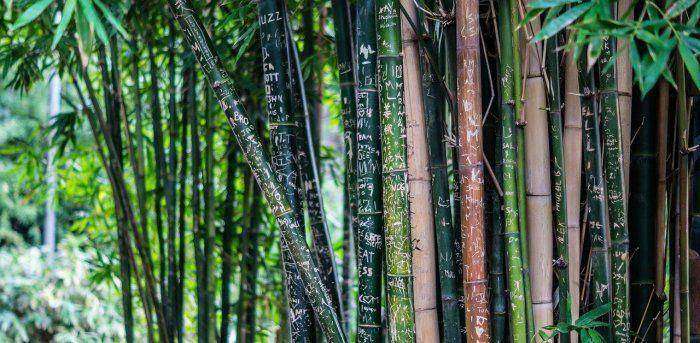The central government of India has decided to set-up bamboo clusters in Jammu and Kashmir to create employment opportunities. According to the government, the bamboo clusters will provide opportunities to about 25,000 residents of newly formed Union Territories.
Three bamboo clusters would be developed in Katra, Jammu, and Samba. Bamboo baskets, incense sticks, and bamboo charcoal are the products that will be produced in these clusters. A team of experts would visit Jammu to examine the scope of bamboo farming and bamboo industries in the region.
In January 2020 a workshop-cum-exhibition was organized in collaboration with the J&K government for the locals of the UT. The Modi government by modifying the old Indian Forest Act last year removed the ban from the bamboo movement.
About 35% of the north-eastern states are under bamboo cultivation but it could not be used until restrictions are removed from its movement. To increase the potential of the bamboo sector in the country the central government established the first bamboo industrial park at Dima Hasao district in Assam.
The park was made over an area of 75 hectares to provide a competitive edge to the bamboo growers and entrepreneurs by promoting bamboo industries in the region. According to the 2019 Global Industry Report, the total value of the bamboo market at the global level was USD 72.10 billion which is expected to reach USD 98.75 billion by 2026.
Although India has 30% of the total bamboo resources and has the world’s largest growing area of about 15.69 million hectares still India contributes only a 4% share in the bamboo sector globally. According to the data the Northeast states of India produce about 60% of the bamboo and with these bamboo industries, India’s share could be increased.
Further steps are taken by the central government to improve the infrastructure and to promote entrepreneurship in the bamboo sector in J&K. The construction of the Bamboo technology park and bamboo training center will be completed in two years after the date of allotment of land by the UT authorities.
The government is giving high priority to the bamboo sector these days. According to government officials, there are large reserves of bamboo in J&K which are unexplored and unutilized. The workshop cum exhibition got the interest of many firms and these firms with the help of the J&K government will set up more bamboo parks, hi-tech nurseries, and clusters.
Another major decision taken by the central government was to increase the import duty on bamboo sticks. Earlier the import duty on bamboo was 10% but now it will be raised by 25%.
The decision was made for setting up the new incense sticks manufacturing industries to meet the growing demand for incense sticks in India. Since September 2019, no raw material for the manufacturing of incense sticks has been imported into India, and the local bamboo is used to make incense sticks.
With the implementation of such schemes in J&K, the economic conditions of bamboo growers and small bamboo industry owners will be improved. The DoNER Ministry has decided to set up bamboo industries across India starting from J&K.
Dhan Chaudhary, a young entrepreneur from North East during the two-day exhibition said that “the incense stick market in India is about Rs 6000 crore and is constantly growing at a rate of 10% per year. In India, there are 12000 incense stick manufacturing units which provide a livelihood to over 33 lakh people directly or indirectly”.
Manufacturing of incense sticks will provide good job opportunities to the people of J&K as the industry has a good scope in the region. With increasing job opportunities the economy of the UT will also grow. Setting up bamboo industries across India will contribute to the economic growth of the country.
Bamboo industries can play an important role in the upliftment of the socio-economic development of J&K. These industries will attract people for the cultivation of bamboo in the region.
The government should introduce new methods of cultivation which will make it easier for the bamboo growers to cultivate the bamboo and should also provide training to the same.
These new inventions will also speed up the production of bamboo products which will grow the economy in a faster way. J&K has a vast scope of agro-ecotourism, handicrafts, and agarbati making, etc.
These industries will set up markets for the sale of bamboo products. People from all over the world will visit these markets and it will benefit UT’s economy. Apart from these industries, the government should also establish industries for bamboo made furniture. These industries will also promote bamboo products globally.
